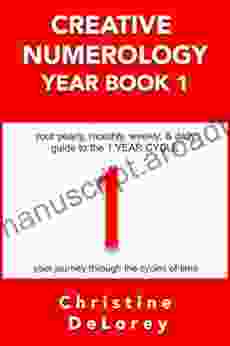Providence: A Guiding Force in the Summa Contra Gentiles

In the vast and intricate tapestry of Christian theology, the concept of Providence stands as a central pillar, illuminating the relationship between God, creation, and human purpose. Thomas Aquinas, one of the most influential philosophers and theologians of all time, explored this concept in depth in his magnum opus, the Summa Contra Gentiles.
Providence: A Guiding Hand
Aquinas defines Providence as "the plan of God's wisdom by which all things are directed to their end." In other words, Providence is the divine plan that governs all of creation, guiding it towards its ultimate purpose. This plan is not arbitrary or capricious, but rather a reflection of God's infinite wisdom and love.
4.8 out of 5
| Language | : | English |
| File size | : | 850 KB |
| Text-to-Speech | : | Enabled |
| Screen Reader | : | Supported |
| Enhanced typesetting | : | Enabled |
| Word Wise | : | Enabled |
| Print length | : | 280 pages |
According to Aquinas, Providence extends to all aspects of creation, from the smallest subatomic particle to the vast expanse of the universe. Nothing escapes its watchful eye, and everything has a role to play in the grand scheme of things.
God's Foreknowledge and Human Free Will
One of the most challenging aspects of the concept of Providence is its relationship with human free will. If God knows everything that will happen, including our choices, does that not negate our freedom? Aquinas grapples with this question in the Summa Contra Gentiles, arguing that God's foreknowledge does not determine our actions.
Aquinas distinguishes between two types of foreknowledge: simple foreknowledge and conditional foreknowledge. Simple foreknowledge is God's knowledge of what will happen if certain conditions are met. For example, God knows that if I jump off a cliff, I will fall and likely die. However, this does not mean that I am forced to jump off the cliff. I retain the freedom to choose whether or not to do so.
Conditional foreknowledge does not violate human free will because it does not predetermine our choices. Rather, it simply acknowledges the possible outcomes of our actions. God's foreknowledge is not a coercive force; it is a reflection of his perfect understanding of the world he created.
Evil and the Problem of Pain
The existence of evil and suffering is often seen as a challenge to the concept of a benevolent and all-powerful God. If God is truly good, why does he allow bad things to happen? Aquinas addresses this question in the Summa Contra Gentiles, arguing that evil is not a positive force in itself, but rather a privation of good.
Aquinas distinguishes between two types of evil: moral evil and physical evil. Moral evil is the result of human sin, while physical evil is the result of natural causes, such as earthquakes, hurricanes, and disease. Aquinas argues that God does not directly cause evil, but rather permits it as a consequence of human freedom and the limitations of the created world.
Aquinas also argues that God uses evil for good purposes. For example, physical evil can lead us to appreciate the value of health and well-being. Moral evil can lead us to recognize the importance of virtue and to seek God's forgiveness.
Teleology and the Purpose of Creation
The concept of Providence is closely linked to the concept of teleology, which is the idea that everything in the universe has a purpose. Aquinas argues that God created the world with a specific purpose in mind, and that this purpose is reflected in the Free Download and harmony of creation.
The ultimate purpose of creation is to glorify God and to lead human beings to eternal happiness. This purpose is achieved through the exercise of human free will and the pursuit of virtue. Aquinas argues that when we act in accordance with God's plan, we not only fulfill our own purpose but also contribute to the greater good of the universe.
Thomas Aquinas's Summa Contra Gentiles provides a comprehensive and nuanced exploration of the concept of Providence. Aquinas argues that Providence is a guiding force in the universe, directing all things towards their end. This plan is not arbitrary or capricious, but rather a reflection of God's infinite wisdom and love.
While the concept of Providence raises complex questions about God's foreknowledge, human free will, and the problem of evil, Aquinas offers thoughtful and insightful answers that have shaped Christian thought for centuries. The Summa Contra Gentiles remains an essential text for anyone seeking to understand the relationship between God, creation, and human purpose.
4.8 out of 5
| Language | : | English |
| File size | : | 850 KB |
| Text-to-Speech | : | Enabled |
| Screen Reader | : | Supported |
| Enhanced typesetting | : | Enabled |
| Word Wise | : | Enabled |
| Print length | : | 280 pages |
Do you want to contribute by writing guest posts on this blog?
Please contact us and send us a resume of previous articles that you have written.
 Book
Book Novel
Novel Page
Page Chapter
Chapter Text
Text Story
Story Genre
Genre Reader
Reader Library
Library Paperback
Paperback E-book
E-book Magazine
Magazine Newspaper
Newspaper Paragraph
Paragraph Sentence
Sentence Bookmark
Bookmark Shelf
Shelf Glossary
Glossary Bibliography
Bibliography Foreword
Foreword Preface
Preface Synopsis
Synopsis Annotation
Annotation Footnote
Footnote Manuscript
Manuscript Scroll
Scroll Codex
Codex Tome
Tome Bestseller
Bestseller Classics
Classics Library card
Library card Narrative
Narrative Biography
Biography Autobiography
Autobiography Memoir
Memoir Reference
Reference Encyclopedia
Encyclopedia Jay Kinney
Jay Kinney Paige Vanderbeck
Paige Vanderbeck Mark Power
Mark Power Cheryl Tatano Beck
Cheryl Tatano Beck Tessa De Loo
Tessa De Loo Jeff Duncan
Jeff Duncan Serj Talisman
Serj Talisman Dr Zakir Naik
Dr Zakir Naik Cecilia Minden
Cecilia Minden Chris Tia Donaldson
Chris Tia Donaldson The Scientist
The Scientist Christian Collberg
Christian Collberg Cebelius
Cebelius Geraldo A Passos
Geraldo A Passos Charles E Baukal Jr
Charles E Baukal Jr Piers Torday
Piers Torday Christine Day
Christine Day Christopher King
Christopher King Christian John Sales
Christian John Sales Chris Holmlund
Chris Holmlund
Light bulbAdvertise smarter! Our strategic ad space ensures maximum exposure. Reserve your spot today!
 T.S. EliotFollow ·10.4k
T.S. EliotFollow ·10.4k Jean BlairFollow ·2.5k
Jean BlairFollow ·2.5k Jayson PowellFollow ·3.1k
Jayson PowellFollow ·3.1k Eric HayesFollow ·12.2k
Eric HayesFollow ·12.2k Rubén DaríoFollow ·4.8k
Rubén DaríoFollow ·4.8k Steven HayesFollow ·7.5k
Steven HayesFollow ·7.5k Ken SimmonsFollow ·13.3k
Ken SimmonsFollow ·13.3k Ken FollettFollow ·7.6k
Ken FollettFollow ·7.6k

 Esteban Cox
Esteban CoxYour Yearly Monthly Weekly Daily Guide To The Year Cycle:...
As we navigate the ever-changing currents...

 George Orwell
George OrwellIdentifying and Understanding Astronomical and...
Prepare to embark on an extraordinary...

 Arthur Conan Doyle
Arthur Conan DoyleYour Yearly Monthly Weekly Daily Guide to the Year Cycle:...
Welcome to "Your Yearly Monthly Weekly Daily...

 Steve Carter
Steve CarterUrban Informatics: Unlocking the Secrets of Smart Cities...
An In-Depth Exploration of Urban...

 Henry Hayes
Henry HayesUnveil the Secrets of the Order of the Solar Temple: A...
In the realm of secret...
4.8 out of 5
| Language | : | English |
| File size | : | 850 KB |
| Text-to-Speech | : | Enabled |
| Screen Reader | : | Supported |
| Enhanced typesetting | : | Enabled |
| Word Wise | : | Enabled |
| Print length | : | 280 pages |












